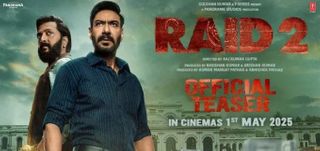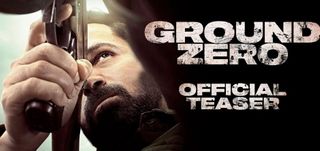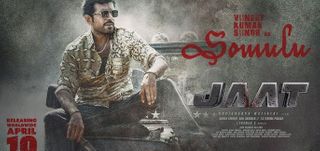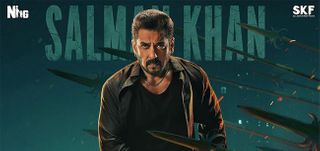
L O C Kargil Movie Review
Around April 1999, Pakistani infiltrators captured some Indian territory in Jammu and Kashmir. The Indian Army fought for over four months to reclaim the territory and lost around 450 soldiers in the ensuing battle. This is the story of the Kargil war. One that director JP Dutta ambitiously attempts to capture on celluloid. It has taken him over two years to translate Kargil into four hours of film. A lengthy one by any standards, with around two dozen heroes and a dozen leading ladies sharing the stage.
Dutta has gone to great lengths to research the story. Apparently, he had around 200 notebooks with handwritten notes on the background of the war. He had about 26 meetings with the dead soldiers' families and with the Army to get the details right.
The shooting was done under extreme conditions. Recounts actor Manoj Bajpai in an interview: 'When we shot the film only 60 per cent oxygen was available, as we were 14,000 feet above sea level. It was an extremely difficult condition [to shoot]. I told my co-stars we are perspiring only to shoot the film, while our jawans fought without caring for their lives.'
With so much preparation that went into its making, LoC-Kargil is probably one of the most awaited Indian movies to deal with war. And the most expensive.
To Dutta's credit, he spares no efforts to recount the events that led to the success of the operation.
The action is set around different battalions and their progress as they capture points along the line of control (LoC). The bloody battles fought along the line of control are depicted in great detail. Weaving through the action are the emotional stories of the men who died -- the women and families they loved and left behind.
Set against the picturesque, icy heights of Leh-Ladakh and Shimla, Dutta replicates the terrain that soldiers encountered along these alien and gruelling stretches. From long drawn out battle scenes to teary-eyed farewells, the constant boom of grenades to the rattle of machine guns, there is no respite in this four-hour epic about the men who fight our wars and keep vigil along the border.
The opening song Seemayen bulaye tujhe chal raahi picturised on the women, has the audience attuned to the patriotic theme of the movie. The other numbers, all penned by lyrics by Javed Akhtar are equally touching.
While a number of stars share screen space, their characterisations are quite well sketched. Your heart goes out to Captain Anuj Nayyar (Saif Ali Khan) who leaves behind his love, played by Kareena Kapoor; Manoj Pandey (Ajay Devgan), who for his outer bravado is as emotional as the next guy, but won the Param Vir Chakra; Vikram Batra (Abhishek Bachchan), a daredevil soldier whose motto in life is 'Yeh dil maange more', who won the Param Vir Chakra; the brave Lt Balwant Singh (Akshaye Khanna), who was awarded the Mahaveer Chakra.
Major Deepak Rampal (Sanjay Kapoor) is on leave, but cuts it short when he hears about the trouble on the border and gets back to the frontline. Colonel YK Joshi (aka YK Joe, played by Sunjay Dutt), awarded the Vir Chakra bravely leads his men to victory. Other actors like Suniel Shetty (playing rifleman Sanjay Kumar), who held the barrels of the enemy's guns with their bare hands as they fired, live up to the real life heroes. Ashutosh Rana and Manoj Bajpai, both called Grend Yogendra Sing Yadav, share a camaraderie well enacted. Some of their on screen moments are worth looking out for.
Besides the men who fight our wars, the tale also deals with the women who have to live their lives in constant fear for their loved ones. A few weeks ago, I caught up with a friend who works in the Indian Air Force. She told me of the tension she lives through every day as her husband, a fighter pilot, is currently on a mission in Leh. He walks quite a distance every day to call her. A scene where the soldiers line up to use the STD booth to call their loved ones reminded me of her plight.



















